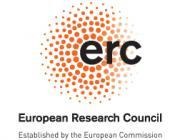Citation:
Abstract:
Orthodox historiographies on Israel’s early policies in ‘black’ Africa and its relations with ‘white’ South Africa commonly, if disjointedly, assert that the state’s Jewish identity had played, in the early 1960s, a key role in Israel’s participation in the international ‘struggle against apartheid’. Revisiting this assertion, I examine Israel’s involvement in early United Nations debates on South Africa’s race policies. I trace the making of Israel’s position on South Africa’s treatment of persons of Indian origins in preparation for the 1950 General Assembly; present Israel’s voting praxis in that session; and demonstrate the persistence of both position and praxis in the 1952 Assembly session where apartheid first appeared on the UN agenda. Against the grain of existing accounts, I argue first that, on Africa, Israel’s multilateral diplomacy preceded its bilateral diplomacy; Israel’s encounter with Africa began not in the early 1960s but with its 1949 UN admission, compelling its envoys to vote and reflect on African and colonial questions, including apartheid. Secondly, I demonstrate that Israel approached apartheid with equivocation; at the UN, its diplomats devised and acted on a formula allowing them, in their words, ‘to have our cake and eat it’—even if, on the whole, Israel’s diplomatic praxis was far more progressive than that of Western states. Thirdly, I demonstrate how Jewish identity, constructed through the prism of Israel’s foundational ideology, affected such equivocation: it defined Israel’s dilemma on apartheid but, at the same time, also offered a route out of that conundrum. Finally, I illustrate that the elasticity of Jewish identity displayed by Israel’s envoys drew on sensibilities that were often formed in South Africa itself by their own previous encounters with racially-managed society and, later, with apartheid.

